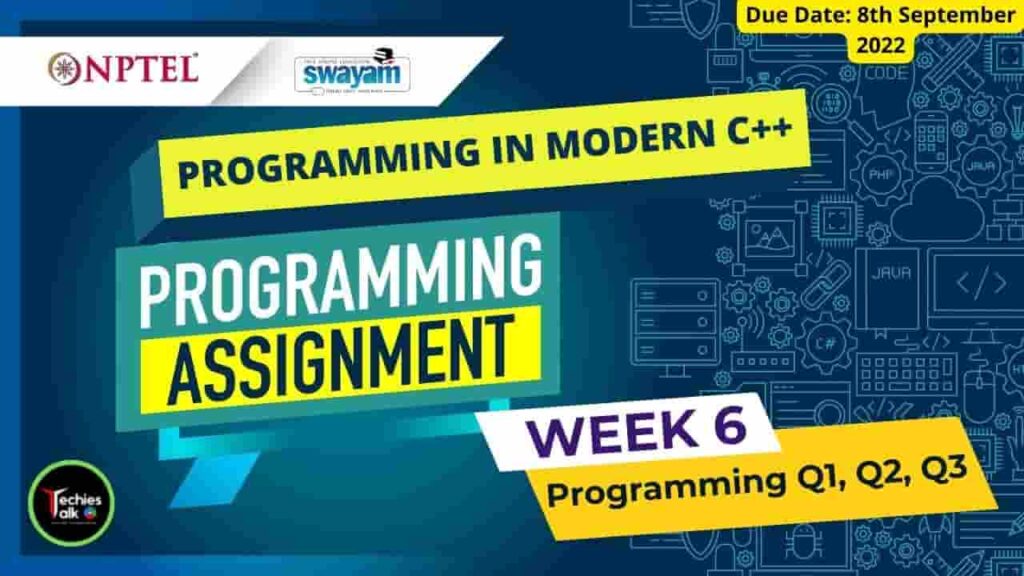
There has been a continual debate on which programming language/s to learn, to use. As the latest TIOBE Programming Community Index for August 2021 indicates – C (13%), Python (12%), C++ (7%), Java (10%), and C#(5%) together control nearly half the programming activities worldwide. Further, C Programming Language Family (C, C++, C#, Objective C etc.) dominate more than 25% of activities. Hence, learning C++ is important as one learns about the entire family, about Object-Oriented Programming and gets a solid foundation to also migrate to Java and Python as needed. C++ is the mother of most general purpose of languages. It is multi-paradigm encompassing procedural, object-oriented, generic, and even functional programming. C++ has primarily been the systems language till C++03 which punches efficiency of the code with the efficacy of OOP. Then, why should I learn it if my primary focus is on applications? This is where the recent updates of C++, namely, C++11 and several later offer excellent depths and flexibility for C++ that no language can match. These extensions attempt to alleviate some of the long-standing shortcomings for C++ including porous resource management, error-prone pointer handling, expression semantics, and better readability. The present course builds up on the knowledge of C programming and basic data structure (array, list, stack, queue etc.) to create a strong familiarity with C++98 / C++03. Besides the constructs, syntax and semantics of C++ (over C), we also focus on various idioms of C++ and attempt to go to depth with every C++ feature justifying and illustrating them with several examples and assignment problems. On the way, we illustrate various OOP concepts. The course also covers important advances in C++ 11 and later released features..
Programming In Modern C++ Week 6 Programming Assignment.
INTENDED AUDIENCE : Any interested audience
PREREQUISITES : 10th standard/high school
INDUSTRY SUPPORT : Programming in C++ is so fundamental that all companies dealing with systems as well as application development (including web, IoT, embedded systems) have a need for the same. These include – Microsoft, Samsung, Xerox, Yahoo, Oracle, Google, IBM, TCS, Infosys, Amazon, Flipkart, etc. This course would help industry developers to be up-to-date with the advances in C++ so that they can remain at the state-of-the-art.
Course Layout
Programming Assignment Q1
#include<iostream>
#include<cstring>
using namespace std;
class Base{
protected:
string s;
public:
Base(string c) : s(c){}
virtual ~Base(){ } //LINE-1
virtual string fun(string x)=0; //LINE-2
};
class Derived : public Base{
public:
Derived(string c) : Base(c) {}
~Derived();
string fun(string x){
return s+x;
}
};
class Wrapper{
public:
void fun(string a, string b){
Base *t = new Derived(a); //LINE-3
string i = t->fun(b);
cout << i << " ";
delete t;
}
};
Derived::~Derived(){ cout << s << " "; }
int main(){
string i, j;
cin >> i >> j;
Wrapper w;
w.fun(i,j);
return 0;
}
Programming Assignment Q2
#include<iostream>
using namespace std;
class Base{
int i;
virtual void fun(); //LINE-1
public:
Base(int x) : i(x) {}
friend void caller(Base &t); //LINE-2
};
class Derived : public Base{
int j;
void fun(){ cout << j; }
public:
Derived(int x) : Base(x), j(10*x){}
};
void Base::fun(){ cout << i; }
void caller(Base &t){
t.fun();
}
int main(){
int x;
cin >> x;
Derived t(x);
caller(t);
}
Programming Assignment Q3
#include<iostream>
using namespace std;
class Test{
protected:
int n;
public:
Test(int i) : n(i) { cout << ++n << " "; }
virtual ~Test(); //Line-1
};
class DerivedTest : public Test{
public:
~DerivedTest(); //Line-2
DerivedTest(int i) : Test(2*i) { cout<< ++n << " "; }
};
Test::~Test() { cout<< --n << " "; }
DerivedTest::~DerivedTest() { cout<< --n << " "; }
int main(){
int n;
cin>>n;
DerivedTest *d = new DerivedTest(n);
Test *t = d;
delete t;
return 0;
}